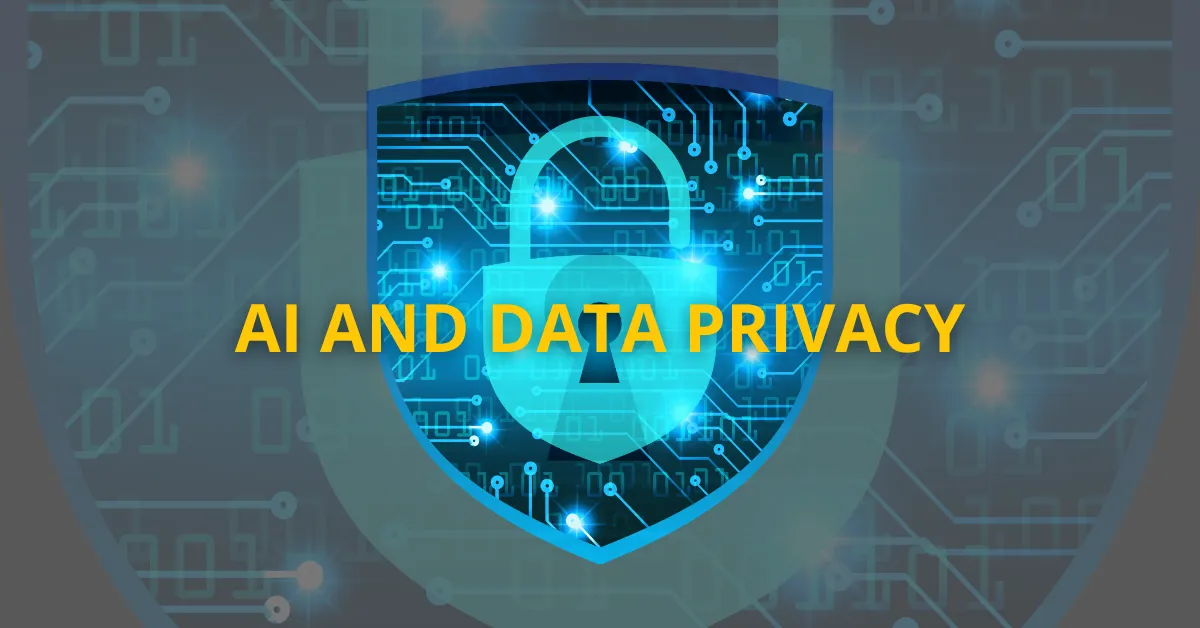In today’s time, data has emerged as a powerful tool, and Artificial Intelligence is channelising this data to trigger amazing transformations. From automation of tasks to strategising, data is playing a crucial role at every stage of development.
However, this large volume of data can be an overwhelming issue. There is always a threat of losing the information and it being misused. The volume of data influx has also increased massively, which has become a pressing issue. Managing the data and ensuring the confidentiality of information are the key concerns.
While the domain of Artificial Intelligence continues to expand, we cannot undermine the fact that concerns regarding data privacy and confidentiality are also growing. According to a CISCO study, more than 90% of respondents believe that generative AI demands new strategies to manage data.
Importance of Privacy in the Digital Era
We are now living in an era of connected devices, where all information is freely floating on the World Wide Web. This data is helpful for businesses and organisations to understand the customer preference, thus helping them strategies their policies. However, another concerning point is the sensitivity and vulnerability of data. Individuals are not willing to share personal information. Here comes the role of data privacy.
Data privacy means ensuring the safety and confidentiality of information. Since AI models are trained on data, ensuring their confidentiality is a key concern. Thus, it has given rise to the debate on using these systems.
Although we cannot undermine the penetration of AI technology in our lives, we also need to mention that addressing data privacy concerns has become important.
Privacy Challenges in the Age of AI

Trusting machines with data confidentiality is like being on a cliffhanger. While we cannot undermine AI’s penetration into our lives, confidentiality issues are concerning. As Artificial Intelligence technology advances, it will be able to study the nuances of the input data and make decisions.
Data Privacy Violation
One of the key concerns regarding data privacy is the breach of information. Since AI systems require vast volumes of data, any loophole in the system or loss of data, this information leakage can result in misuse of the data, resulting in cyberbullying. It is predicted that by 2025, the global cost of cybercrime will reach $10.5 trillion, growing at a rate of 15 per cent annually.
Bias and Discrimination
When we talk about AI or ML models, the algorithmic bias of these models is a rising concern. AI systems are unbiased; only till the time the data is fed to them is unbiased. Once biased data is introduced into the training process, the outcomes produced by the AI system will inevitably reflect that bias. This highlights the significance of training datasets.
While it might raise questions about how data bias and data privacy are interrelated when we look at it at a granular level, data used for training AI models can impact their performance. If an AI system is biased, it can use this data to perpetuate these biases.
Surveillance and Monitoring
Biometric technologies have been a game changer. These hold a lot of information like facial recognition, fingerprint recognition, etc. If this data falls in the wrong hand can result in misuse of the information. Loss of this data or information can lead to major concerns.
Lack of Informed Consent
One of the concerns regarding AI systems is the obscurity of how data is collected and used. This can complicate informed consent. Many users are still naïve about how this data will be used and the intended subject, which also poses a serious privacy challenge.
Best practices for AI model security
As AI technology continues to penetrate different sectors, it raises concerns about enhancing the security of the system and data. This has given rise to ethical AI and responsible AI.
However, the complexity of AI models can be overwhelming. To overcome the same, we have enlisted the best practices that one needs to follow:
1. Creating a Zero-Trust Architecture
Building a zero-trust AI architecture and framework can help in resolving the issue of data privacy. The organisations can ensure that only authorized personnel enter the system. Besides, one needs to go through the verification every time one wishes to cross the system. The organisation can ensure that only authorised users enter the system.
2. Ensuring Data Governance
One of the ways to ensure complete confidentiality and security of data is establishing a clear protocol of data government. This involves encryption of all the sensitive data while they are being stored and when they are in transit. At the same time, ensuring limited access to the sensitive data helps in proper monitoring. Following the GDPR or HIPAA guidelines further ensures data privacy.
3. Regular Model Verification
Timely verification of the AI models is a must. This includes the use of signature or verification processes for open-source models. This prevents the entry of unauthorised access. At the same time, regular inspection of the output of the AI models to detect and mitigate risks associated with malicious user inputs.
Conclusion
The integration of AI and concerns about data privacy are two pressing questions. As technology continues to evolve, we will be witnessing a massive influx of data. In such a scenario, the focus should be on ensuring complete confidentiality of the information. We have discussed in depth how companies can harmoniously sync AI without compromising on data security concerns.
The Way Ahead
There is much more to explore in the world of AI and Data Science. While both these fields may appear diverse, they are interlinked. Once one has knowledge about the fundamentals and a grasp of practical data science use cases, one can excel as an AI professional and create an infallible AI architecture.
The data science internship program prepares you for the same. It helps you understand the key skills. So, if you wish to grow as an AI professional, begin your learning journey with the internship for freshers in the Data Science or AI domain.



